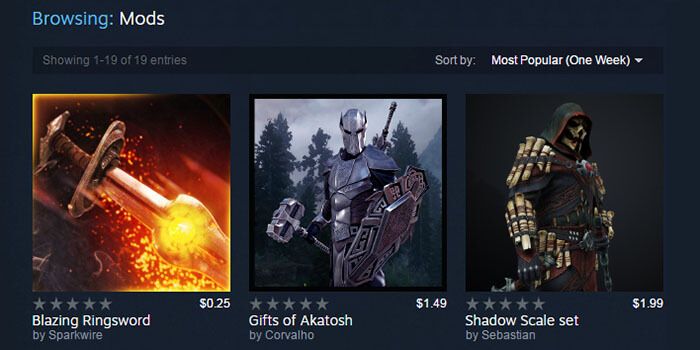Mods are great. These small, fan-created pieces of code alter games in ways that the original creators never intended, opening up a bevy of new gameplay opportunities and extending the game's shelf-life (sometimes, for years) for free. Mods can turn Minecraft into an interplanetary adventure title, or give Grand Theft Auto characters superpowers. Some mods are so good that they become full games on their own: DayZ and Counter-Strike, for example, started as mods for ARMA 2 and Half-Life, respectively.
Mods are also terrible. They're glitchy, and can be a pain to install. Often, they ruin the designers' carefully constructed gameplay systems, giving certain players unfair advantages, or even breaking the game entirely. While some developers give fans official modification tools, many more leave modders to their own devices. Mods build a stronger community, but they're not official products. Many exist in a kind of legal or ethical grey area, and it's easier for most publishers to simply look the other way. After all, as long as people aren't paying for them, what's the harm?
Regardless, many of the best mods take weeks - or, in some cases, years - to put together, and at least one major publisher thinks that modders should be rewarded for their hard work. Starting today, Valve will let mod creators charge for their creations via the Steam Workshop, the digital distribution service's marketplace for community-created content. As Valve explains:
Workshop is now putting mod authors in business via a new streamlined process for listing, selling and managing their creations. Creators contributing to the Steam Workshop have the choice of listing their new creations for sale at a price of their choosing, or to continue to make their work available to players for free. Mods purchased from the Steam Workshop are available immediately for play.
Skyrim, a popular subject for modders, is the first game that supports Steam Workshop's for-sale, set-your-price model; other games will join Skyrim soon. Presumably, publishers will need to sign off on for-profit mod support before Valve adds them to the Steam Workshop program. Every mod sold through Steam comes with a 24-hour refund policy, so buyers who aren't sure about a particular piece of content - or who get burned by a glitchy or incomplete modification - have some type of protection.
Modders set their own prices, so there's no standard pricing scheme in place at the moment; among the 19 Skyrim mods currently available for sale, prices range from 25 cents to $5.99. Expect the market to stabilize as more mods become available, and consumers decide what is and isn't worth paying for. Steam will only issue payouts to modders after profits top $100, and takes a 75% cut of all sales, similar to its commission on fan-made items for Dota 2.
Source: Steam

